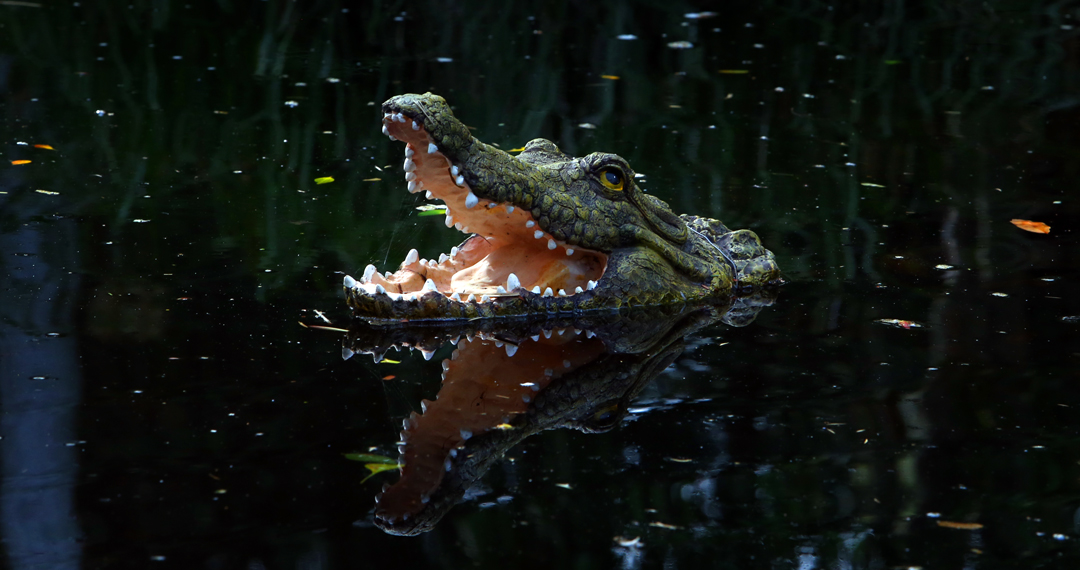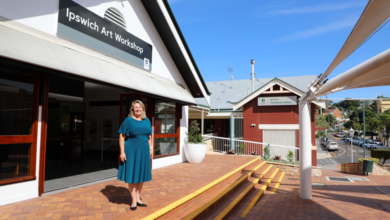Never smile at a crocodile
The Ipswich Nature Centre has welcomed three new animals, unlike any they have had before.
They are scarier for starters.
Meet Snappy, Chomp and Cornelius – the newest residents to the zoo.
These three salt water crocodiles are very low maintenance as they don’t require a special enclosure, feeding, water, vet care or cleaning up after.
The truth is, they are not real animals.
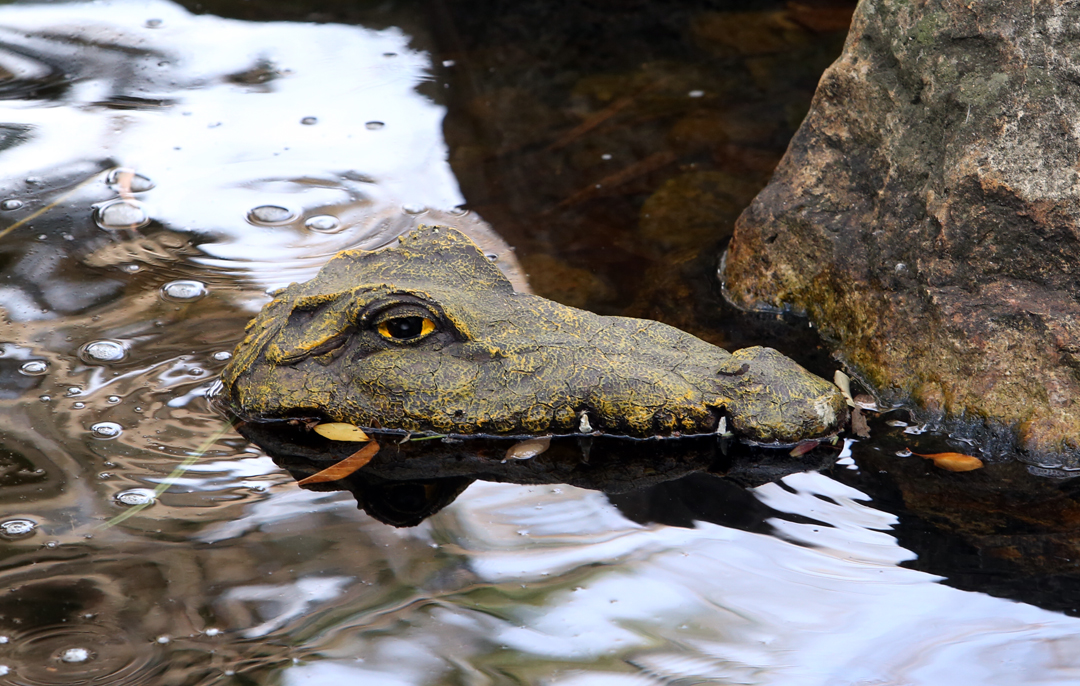
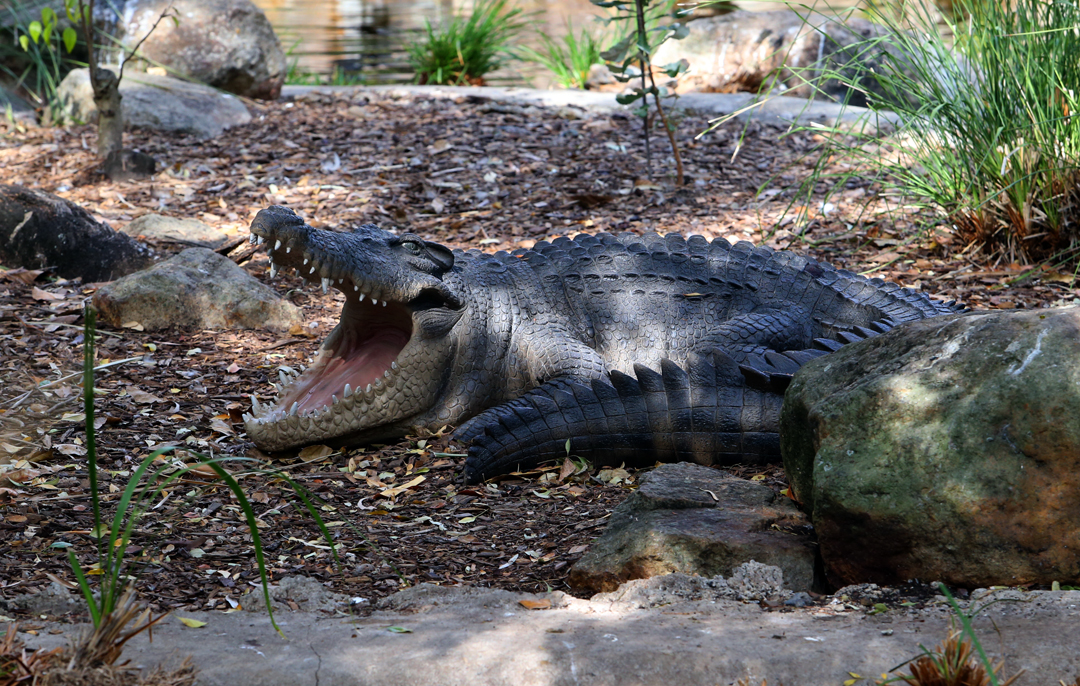
Cornelius is a full size croc made from UV resistant resin and hand painted to look as life like as possible.
Cornelius is named for a children’s book Cornelius the Crocodile.
In the book, Cornelius is a little different from other crocodiles, making Cornelius the perfect choice for the new crocodile’s name.
Snappy and Chomp like to spend their days floating in the pond wowing unsuspecting visitors.
The other animals at the zoo are not bothered by the new additions at all but many squeals can be heard when visitors spot them for the first time.
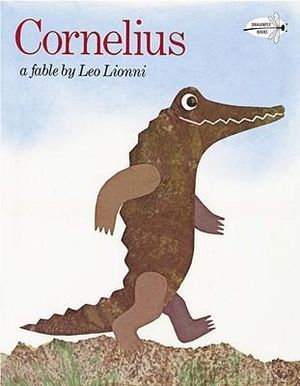
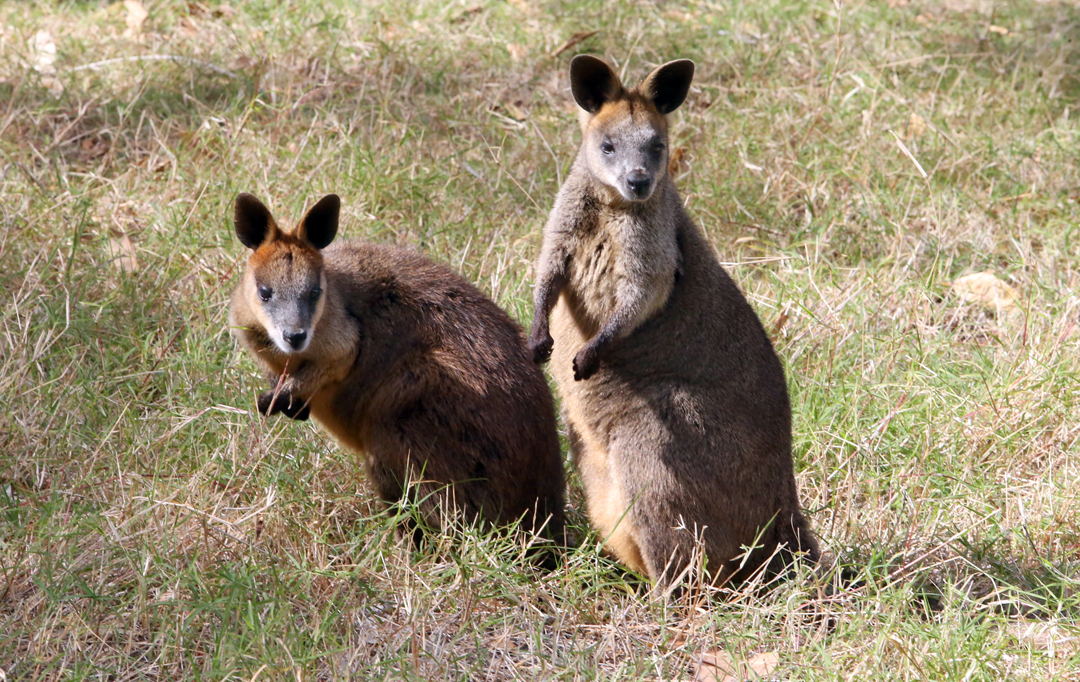
Harmonious housemates
Mya and Susan can often be seen sitting together or lying next to each other under the giant fig tree in the swamp wallaby enclosure.
Mya was born at the Ipswich Nature Centre in 2005, so when Susan came to the nature centre in 2016, zoo keepers knew what to do to make her feel at home.
Senior Zoologist Nicole Richards wanted Susan to have a friend right off the bat.
“We paired her up with Mya because of her calming nature, it has really worn off” she said.
“She showed Susan the ropes and learned the daily routines with a friend by her side.
“They can often be seen next to each other in the yard and during the day they share food with one and other also.”
The friends also share their enclosure with two other great friends, red-legged pademelons Cindy and Davey.
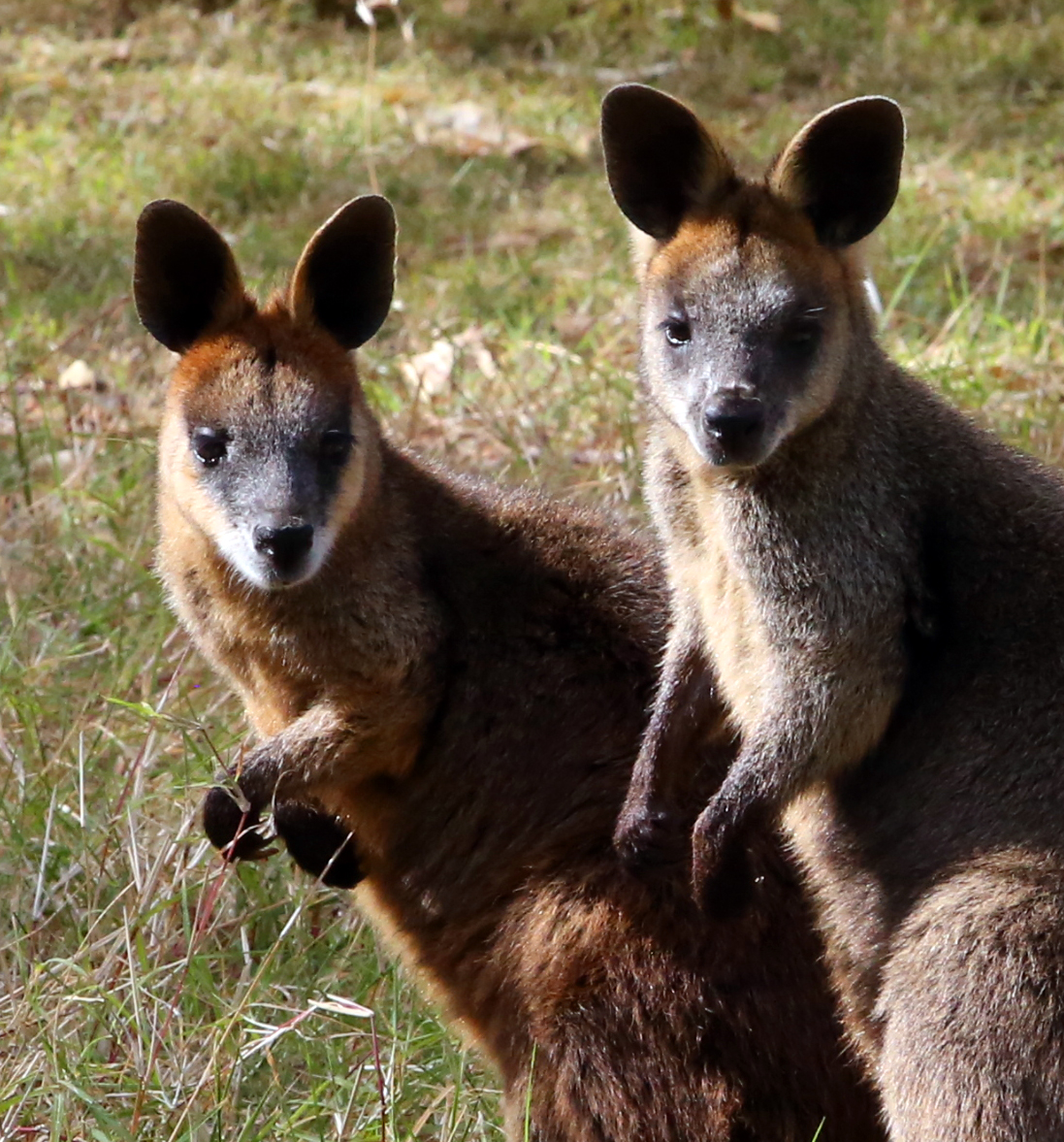
Swamp wallaby facts
Swamp wallabies are considered common throughout eastern Australia.
Their size ranges from 66cm to 85cm, they have dark brown fur, often with lighter rusty patches on the belly, chest and the base of their ears.
Threats include feral dogs, foxes and cats, destruction of habitat and bush fires.
Their life expectancy is around 15 years
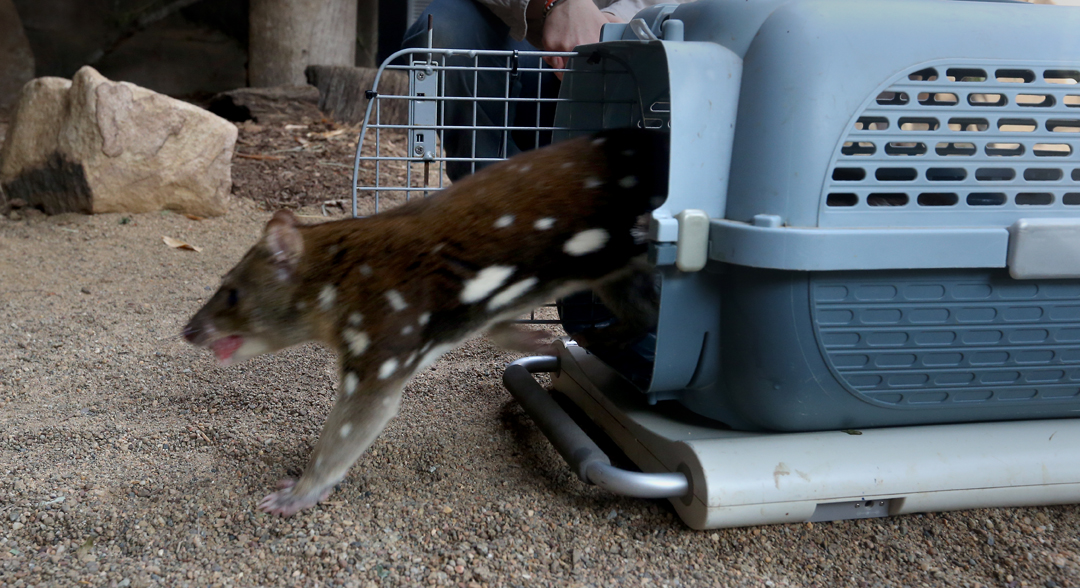
How to train a spotted-tail quoll
It’s a busy time in the spotted-tailed quoll enclosure at the moment.
Leading Hand Tara Snowling has been working with Luna, a spotted-tailed quoll, to get her accustomed to having her weight taken with as little stress to Luna as possible.
Luna is weighed every month as staff keep a close eye on her health and wellbeing.
Tara has devised a routine of placing a petpack onto the scales, then encouraging Luna inside with a small amount of food.
At first Luna has been exposed to the petpack for short periods of time initially and she has now been able to extend the timeframe that Luna will sit comfortable inside.
Ms Richards explains why this type of conditioning is important.
“The less handling that is required of Luna, the better for her,” she said.
“Tara’s work has made the process of monitoring her health much less stressful on Luna.”
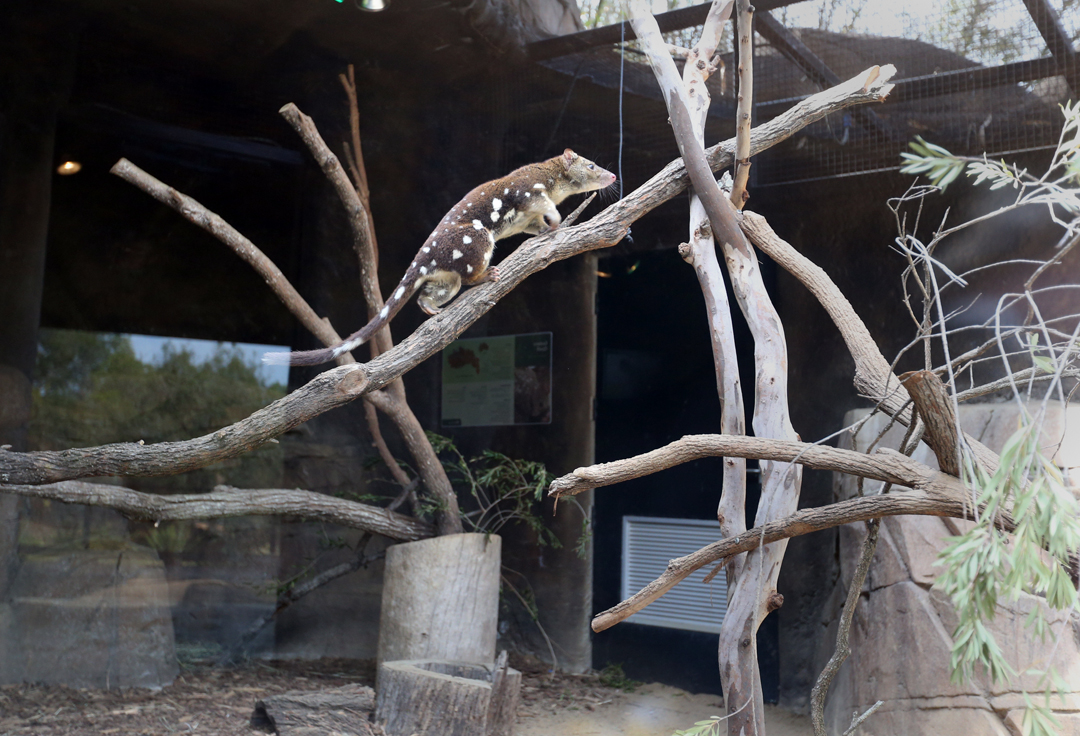
Luna’s enclosure has also been remodelled with a large climbing perch created for her to explore.
The branch has been placed at different heights and gradients to allow her to get more exercise using climbing and jumping.
Part of her environmental enrichment program involves staff hiding food up high in her enclosure, encouraging her to forage for it using her senses.
The Ipswich Nature Centre houses both the spotted-tailed quoll and eastern quoll.
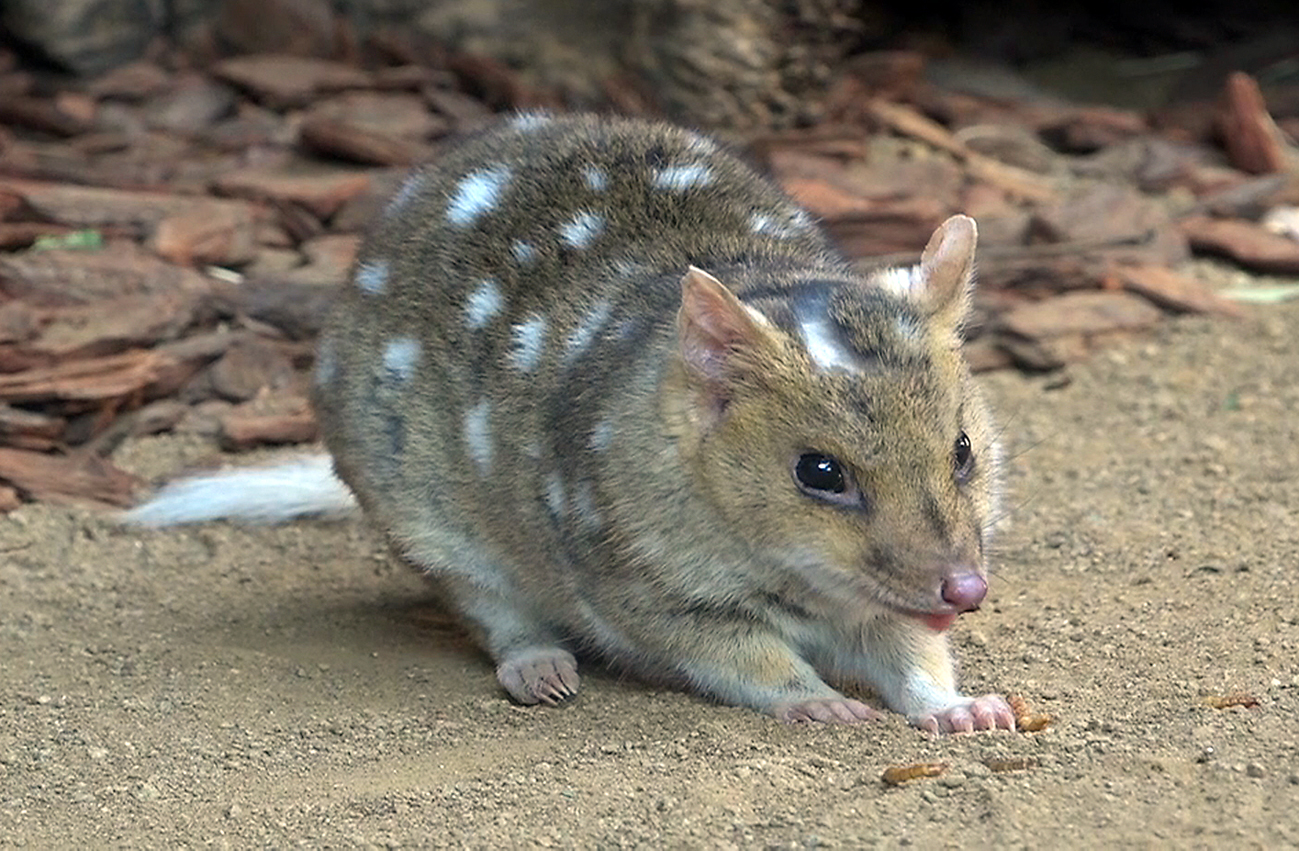
Quoll facts
There are four species of quoll found in Australia. The spotted-tailed quoll, western quoll, eastern quoll and northern quoll.
The spotted-tailed quoll is the largest carnivore on the mainland after dingoes.
The spotted-tailed quoll population is seriously threatened throughout mainland Australia. Numbers have greatly declined due to the introduction of feral animals such as foxes, cats and dogs, as well as the destruction of their habitats.
At night, this solitary animal hunts and feeds on a variety of prey including birds, medium-sized mammals and reptiles, which it attacks by biting the back of the skull or neck.
Quolls have a life expectancy of approximately five years.
The Ipswich Nature Centre is at Queens Park, opening hours are:
School Holidays – Open 7 days – 9.30 am – 4.00 pm
Tuesday to Sunday – 9.30 am – 4.00 pm
Public Holidays – 9.30 am – 4.00 pm
Closed Christmas Day and Good Friday

